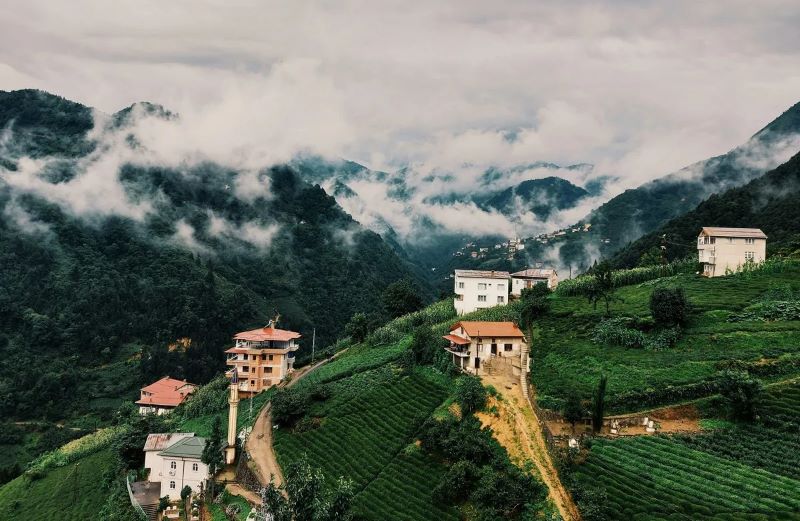[video] Researchers warn that a dialect of ancient Greek is dying out
Romeyka, a linguistic relic tracing back to ancient times, is spoken by barely a few thousands of residents in the Trabzon region in northeastern Turkey. A direct relative of Hellenistic Greek during the times of the Troy wars, this language is now on the brink of extinction, according to researchers.
The University of Cambridge, which supports an initiative led by Professor Ioanna Sitaridou (Queens' College and Faculty of Modern and Medieval Languages and Linguistics), says in a statement that Romeyka doesn’t have a writing system, so it’s transmitted from generation to generation orally only.

A view of villages in the Trabzon valley where Romeyka still lives. Credit: UnSplash
The language is alive thanks to the older population while younger residents prefer Turkish mostly. When the Ottoman Empire took control over the Anatolian Peninsula in the 14th century, many Greek-speaking communities shifted to Turkish and adopted Islam, but some isolated mountainous areas preserved their culture and language.
There are some significant differences between Romeyka and modern Greek but many words take root from the archaic Greek language used in 323 BCE to 32 CE.
In fact, Romeyka is the ancestor of Hellenic Greek while modern Greek descends from medieval Greek, which makes Romeyka the oldest of all Greek versions.
How has it survived to our days?
“Conversion to Islam across Asia Minor was usually accompanied by a linguistic shift to Turkish, but communities in the valleys retained Romeyka. And because of Islamization, they retained some archaic features while the Greek-speaking communities who remained Christian grew closer to modern Greek, especially because of extensive schooling in Greek in the 19th and early 20th centuries,” explains Sitaridou, who has spent the past 16 years studying Romeyka and lived alongside natives.
More to read:
Why was Laconia ruled by two kings at a time?
She has launched a trilingual crowdsourcing platform where the public from anywhere could upload audio recordings of Romeyka being spoken. By creating a lasting repository of Romeyka, the initiative seeks to garner recognition and support for its preservation beyond the confines of its dwindling community.
In spite of this, it seems that Romeyka is doomed. Most speakers are elderly – over 65, and there's a dwindling number of young learners, raising doubts about its intergenerational survival. Moreover, socio-cultural stigma exacerbates the challenges, with Turkish nationalism and Greek identity politics contributing to the marginalization of Romeyka.
The University of Cambridge has published a video about the initiative, on its YouTube channel.
***
NewsCafe relies in its reporting on research papers that need to be cracked down to average understanding. Some even need to be paid for. Help us pay for science reports to get more interesting stories. Use PayPal: office[at]rudeana.com or paypal.me/newscafeeu.







